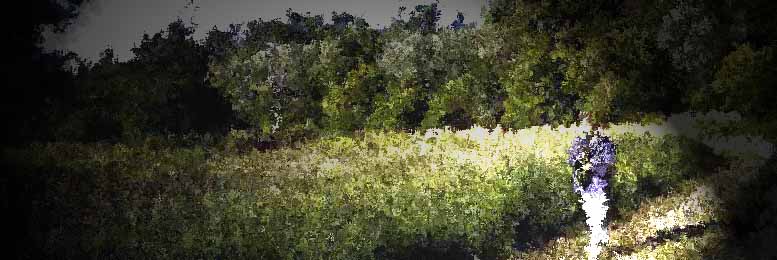20.10.2006 | 03:42
Við brenndum heimili þeirra, drápum alla, menn, konur og börn
Darfur hefur verið nokkuð í umræðunni síðastliðin misseri og ár. Óöldin þar hefur verið skelfileg, en lítið hefur verið aðhafst, Sameinuðu Þjóðirnar hafa verið vanmáttugar í þessum skelfingum og Súdanstjórn hefur ekki verið mjög samvinnuþýð og virðist líta á málið sem innanaríkismál, þeim hljóti að vera heimilt að murka lífið úr eigin þegnum án afskipta "alþjóðasamfélagsins.
En ég vildi vekja athygli á viðtali sem birtist á vefsíðu The Times fyrir nokkru, en þar er rætt við einn fyrrverandi meðlim Janjaweed sveitanna, en það eru einmitt þær sem hefur verið beitt til ódæðisverka í Darfur.
Grípum nokkra "búta" úr viðtalinu:
"Dily, a Sudanese Arab, recounts how for three years he and his fellow Janjawid charged the farming villages of Darfur on their camels and horses, raking the huts with gunfire and shouting: “Kill the slaves. Kill the slaves.”
"He says the Government deceived innocent Arab shepherds like himself into joining the Janjawid, saying they had to defend their communities against attack by Darfur’s black African rebel groups. He says they were trained and armed by Sudanese soldiers, ordered by the Government to attack Darfur’s villages and given military support when necessary. The Janjawid was formed for ethnic cleansing, he insists. “Why (else) would you attack villages, kill people, displace them and kill them in their thousands?” "
"Nor can Dily’s story be independently verified, but he specifies names, places and events, speaks with the accent and idiom of the area he says he comes from, and has persuaded Darfuris living in Britain that he is genuine.
“He’s for real,” said Ishag Mekki, the deputy chairman of the Darfur Union, which represents Darfuris in Britain. James Smith, the chief executive of the Aegis Trust, a pressure group which campaigns against genocide, concurs: “We’ve checked his credibility as much as we can and we’re convinced he is who he says he is.”
Dily, who is in his early twenties, rarely smiled and fidgeted nervously with his hands as he spoke through an interpreter. He said he was tending his family’s camel herd in northern Darfur when rebel groups began attacking government targets in 2003: severe droughts had set black African farmers against nomadic Arabs and the rebels accused the Government of siding with the Arabs.
Dily said he was pressed to join the Janjawid by tribal elders, who were under pressure from government officials. “We were told we were Arab nomads and we had to protect our lands and our cattle,” he said. "
"Those with camels were separated from those with horses. They were organised into battalions of more than 500 men each. They were paid two million Sudanese pounds — roughly £500 — for the use of their camels and promised a monthly salary of 500,000 Sudanese pounds.
Then they were unleashed. Apart from occasional visits home, Dily and his battalion — led by a former bandit — spent the next three years on the move, destroying one village after another. “The Government said attack all villages. The local commanders decided which,” he said.
The battalion would send scouts to check whether there were armed fighters in the targeted village. “If there were no fighters we just attacked straight away. If there were we had to be more cautious.” Sometimes they used satellite telephones to request airstrikes by the Sudanese military helicopters before attacking. “We would see smoke and fire and then we would go in.”
The attacks usually started early and lasted most of the day. The commanders said the villages had to be destroyed, and they did not spare women or children. “Mostly they said “Kill the blacks. Kill the blacks,” Dily said. “The majority of (the victims) were civilians, most of them women.”
Dily said he never raped a woman but other Janjawid did. “They took girls and women away, just out of sight, and started to rape them. Sometimes you heard gunshots if they refused.” They took away the cattle. Some were drunk. "
Viðtalið í heild sinni má finna hér.
Meginflokkur: Stjórnmál og samfélag | Aukaflokkar: Dægurmál, Bloggar | Facebook

Bæta við athugasemd [Innskráning]
Ekki er lengur hægt að skrifa athugasemdir við færsluna, þar sem tímamörk á athugasemdir eru liðin.